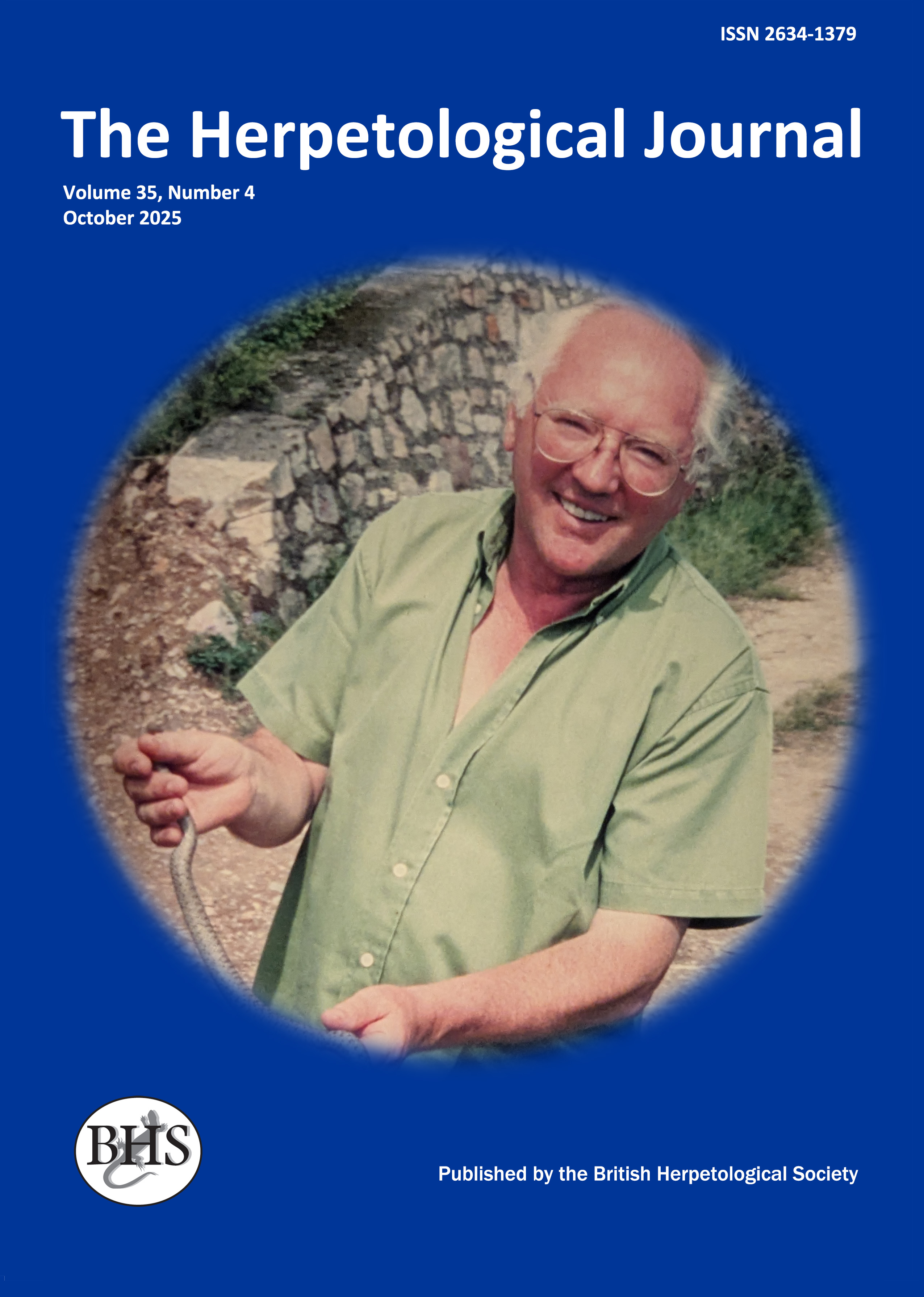
The Herpetological Journal
The Herpetological Journal is the Society's prestigious quarterly scientific journal. Articles are listed in Biological Abstracts, Current Awareness in Biological Sciences,Current Contents, Science Citation Index, and Zoological Record.
ISSN 0268-0130
2023 Impact Factor for the Herpetological Journal is 1.1, with the Journal sitting just below Quartile 2 in Zoology, at percentile 46.9
pdf 04. Rhinella icterica and Rhinella ornata (Anura: Bufonidae) tadpoles do not recognise siblings
698 downloads
Open Access
DOI: https://doi.org/10.33256/31.4.214220
pp. 214-220
Authors: Alexandre Polettini Neto & Jaime Bertoluci
Abstract: Benefits conferred to animals living in groups may be greater if groups are formed by relatives rather than non-relatives, because cooperating with relatives increases the probability of their own genes being passed on to group offspring (inclusive fitness). Non-social aggregations are formed in response to environmental characteristics, while social aggregations are formed from the attraction among individuals. The attraction or repulsion between individuals is mediated by recognition mechanisms, which mediate important ecological processes and behaviours. Here, we conducted laboratory experiments to test if tadpoles of two sympatric bufonids, Rhinella icterica and R. ornata, are able to recognise siblings. We collected
eggs of the two species in the field and raised them in laboratory settings, according to three different methods: siblings and non-siblings reared in separated containers; siblings and non-siblings reared in the same container separated by a plastic net; and eggs from the same spawn reared separately, each one in an individual container. Later, we tested if tadpoles could choose between groups of siblings and non-siblings. The results indicate that tadpoles of neither species were able to discriminate between siblings and non-siblings, regardless of the rearing methods. Therefore, kinship is less important than environmental factors in tadpole aggregation behaviour of these species, and it may be dependent on the balance
between costs and benefits. Our results can be used as a start point to better understand tadpole aggregation behaviour and recognition mechanisms in these species.
Keywords: kin recognition, aggregation behaviour, chemical communication, Atlantic Forest

